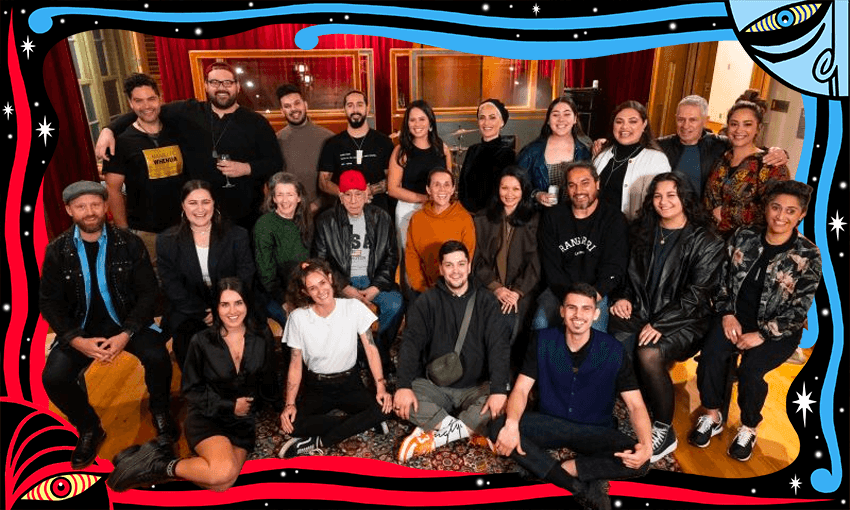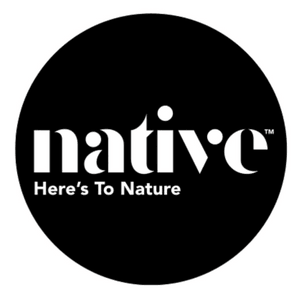Summer read: Bringing together some of Aotearoa’s biggest artists with fresh young talent, Pūtahi Waiata Māori (aka Reo Māori Songhubs) is a powerful support network and mechanism for recording new Māori music. And to the delight of its leader, Dame Hinewehi Mohi, it’s playing a role in reviving te reo.
First published October 7, 2022
Māori music is everywhere. It’s on airplanes, at the café, in the gym, at your local supermarket, in your earpods, all over Instagram and TikTok. It’s not by chance, either.
Long carried by the Iwi Radio Network, waiata reo Māori have made a reinvigorated transition into mainstream consciousness with the support of a strategic campaign led by master orchestrator and visionary, Dame Hinewehi Mohi (Ngāti Kahungunu, Tūhoe).
Passionate about growing the repertoire of waiata reo Māori, she says the love being shown in Aotearoa through the response to waiata reo is incredible, beyond her wildest dreams.
“Music is a wonderful platform for telling stories, for bringing people together, for sharing in a world that is so … at war, at odds with the environment and so disconnected as a result of the isolation that the pandemic has created. We need music and we need waiata Māori to really tie us together and create a sense of cultural identity and nationhood,” says Dame Hinewehi.
Working behind the scenes to facilitate the outpouring of new reo Māori waiata she developed Waiata Anthems.
Launched in 2019, the Waiata Anthems project has been huge success and has seen some of the most iconic songs of Aotearoa rendered in te reo; such as ‘Welcome Home’ / ‘Nau Māi Rā’ by Dave Dobbyn, ‘Bathe In The River’ / ‘Kōrukutia’ by Hollie Smith and ‘Don’t Forget Your Roots’ / ‘Kia Mau Ki Tō Ūkaipō’ by Six60.
From New Zealand music legends like Bic Runga, Katchafire and Shapeshifter, to Aotearoa favourites like Kora, Ladi6 and Six60, the movement encompasses a new generation of creatives including Benee, Drax Project, Teeks, Paige and Muroki.
Through the inclusion of non-Māori artists in this uplifting network that holds te reo dearly at its core, Waiata Anthems shows how the music industry leads the arts in progressive attitudes to unity.
“The power of music is that anyone can access it, even those without hearing can access a vibe and a vibration. For people who want to learn the Māori language, those who want to understand, who want to connect, this is the way to do it,” says Dame Hinewehi.
Building on success of Waiata Anthems, Dame Hinewehi initiated Pūtahi Waiata Māori, otherwise known as Reo Māori Songhubs. Offering guidance and support to the project is Sir Tīmoti Karetu (Ngāti Kahungunu, Ngāi Tūhoe), who has dedicated his life to the retention and development of te reo, and Māori performing arts.
Pūtahi Waiata Māori is held by APRA, where Dame Hinewehi is Pītau Whakarewa, the Māori membership growth and development leader for APRA AMCOS NZ.
APRA is an Australian-based Australasian performing rights association which collects royalties for music played in Australia and Aotearoa, and ensure those royalties are passed on to the artists and composers.
There are four Songhubs sessions per year, while the inaugural Pūtahi Waiata Māori took place in Waimārama in 2020.
After being put on hold for nearly two years due to the pandemic, the long-awaited music workshop came back to life last week with a change in scenery at Roundhead Studios in Tāmaki Makaurau.
“It’s been 18 months of disruptions trying to put Songhubs on. So many people had to cancel at the last minute but we were really careful to get the right group and it just came together at the last minute. Every person is individual and it changes the dynamic but I was really pleased with the compatibility of the group,” says reo Māori Songhubs curator Bic Runga.
After participating in the first Pūtahi Waiata Māori as an artist, the APRA Board Writer Representative is back in the role of curator with Sir Tīmoti Kāretu, who has dedicated his life to the survival and development of te reo.
“Having Sir Tīmoti there in person, to take the time to come from home to spend the week in Auckland was a real blessing for these young artists. Having someone like Hinewehi in the industry, she’s really steering the Reo Māori Songhubs ship, the Waiata Anthems ship. It’s a great opportunity for these Māori creatives. The connections that were made will be invaluable in their careers ahead,” says Runga.
Dame Hinewehi says, “It’s a wonderful way to grow, then as a result of who you meet at these songhubs it becomes a new network, it’s always a magical interaction, experience and outcome.”
Pūtahi Waiata Māori brings together both emerging and experienced Māori artists, musicians, songwriters, taonga puoro practitioners, producers and te reo experts to feed into the growing body of contemporary waiata reo Māori.
“It really creates an environment where everyone is supported, feeling the stories, hearing the music, even if they don’t understand anything that is being sung they still have a connection to it and appreciation for the artform and the cultural integrity that represents us,” says Dame Hinewehi.
Each day for a week, two artists are paired with one producer and one te reo expert. One artist is nominated as the lead artist, with the other in support. Within just 8 hours, an entire track is recorded and mixed for a playback session later in the day.
“This is about an original composition from the ground, from a collaborative experience that really supports an artist’s creativity to blossom, because they’re coming at it from different perspectives with everyone’s input,” says Dame Hinewehi.
The following day, artists and te reo experts are rotated to create new combinations.
For Mātanga Reo Hana Mereraiha (Ngāti Tahu, Te Arawa, Taranaki) who has worked on many songs within the Waiata Anthems collection, Pūtahi Waiata Māori is a chance to again extend her linguistic talents in a creative space.
“The process of waiata creation from the inception of thought right through to finessing the mix at the end of each day was yet again such an enriching learning journey to be part of. It is a highly collaborative process, giving rise to the cross pollination of skill sets, both musically and linguistically and all the while keeping pono to the wider vision around language and cultural regeneration. I am excited to be on this wave as we explore uncharted territories,” says Mereraiha.
After releasing her new single ‘Brown Melodies’ this year, Jordyn Rapana – who goes by the artist name Jordyn With A Why – was one of those artists who took part in the week-long workshop.
“Reo Māori Songhubs was a creative immersion experience I feel so grateful to have participated in. I’m encouraged, as an artist, to have made these connections and crafted waiata alongside heroes I have long admired. I’m excited for the world to hear what we crafted together,” says Rapana.
Dame Hinewehi says that, “It’s starting to develop some confidence in people to continue to do this. For those at the very beginning, it’s absolutely mindblowing. For those who are more experienced in te ao Māori and te ao haka, and new to contemporary writing, that’s where you come together, learn from each other and share and create beautiful things.”
Bic Runga notes how many of the songs being created held the depth of storytelling that can be found across te ao Māori while incorporating contemporary circumstances.
“I loved hearing people’s korero about what they were trying to write and how much all of it meant for them. Some songs had me in tears, Jordyn’s song about her decision to reclaim her language, made me cry both times we heard it in the group. She’s just an exceptional songwriter. I really hope she gets all the support she needs to have a real career in music,” says Runga.
While she may be one of the most recognisable names in New Zealand music, Bic Runga says the curator role is one she relished and was able to put her own life experience into practice.
“I’m getting called whaea for the first time, which is a really nice feeling and it’s cool to move into that space. I’m a mum, so I feel quite motherly to everyone. I’ve got three kids and one is a teenager so I feel like I can really read people better than I ever could, it’s just from watching babies from the last 15 years. Just trying to intuit what people want and need is quite fun and new to me,” says Runga.
“It’s almost difficult to actually describe genre, to describe different feels and styles, there’s quite often a mix of those things that comes about from people of different backgrounds,” says Dame Hinewehi.
For Hana Mereraiha, te reo is at the heart of the creative process.
“The thing that makes us truly unique in this world is our reo. That is our signature. This week has been so fulfilling in all spheres; being reunited with my reo mates, my muso mates, being able to story-tell, to laugh, to sing and compose alongside visionaire extrodanaires Tīmoti Kāretu and Hinewehi Mohi and reaffirm our connection to our language and music,” says Mereraiha.
The growing diversity of Māori music through Pūtahi Waiata Māori and Waiata Anthems is a sign of a language that is flourishing after fifty years of strategic and dedicated efforts of revitalisation.
With the revitalisation of te reo Māori at the heart of it, Dame Hinewehi says that the audience for these waiata is all of Aotearoa and the wider world.
Artists and producers will now be looking to fine tune their creations to unleash for the world in coming months.
Follow our te ao Māori podcast Nē? on Apple Podcasts, Spotify or your favourite podcast provider.

